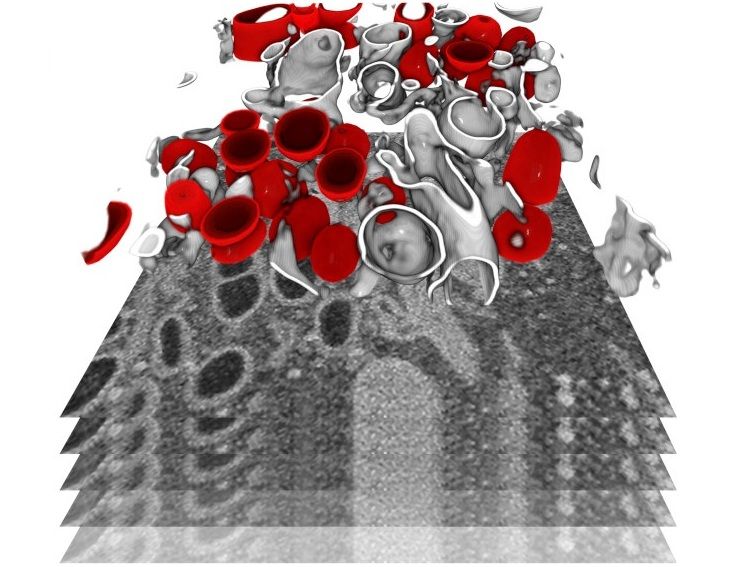Katholieke Universiteit Leuven enters into license agreement with Pfizer for the development of new anti-HIV drugs
Katholieke Universiteit Leuven (K.U.Leuven, Belgium) announced that on July 29th, 2010 they entered into a license agreement with Pfizer. The license agreement grants Pfizer exclusive and sublicenseable worldwide rights to further develop and commercialise K.U.Leuven’s compounds with a new mechanism of action for the potential treatment of individuals infected with HIV, the virus that causes AIDS. The compounds, named ledgins, have been shown to inhibit the interaction between the viral integrase and the cellular protein LEDGF/p75 and form the basis for a new class of drugs that block HIV without cross-resistance with existing anti-HIV drugs.
K.U.Leuven will provide Pfizer with exclusive access to the compounds developed in its LEDGF-integrase directed drug discovery programme and all related know-how. Pfizer seeks to advance several compound classes with this new mechanism of action in its Sandwich, UK, laboratories. Under the terms of the agreement, Pfizer will make an upfront and milestone payments to K.U.Leuven based upon the achievement of development, regulatory and sales goals. K.U.Leuven is also eligible to receive royalty payments on net sales of future products discovered or developed under the agreement.
In 2002, the research group of Prof. Zeger Debyser of K.U.Leuven discovered that HIV uses a cellular protein, called LEDGF/p75, for integrating its genetic material into the host. A multidisciplinary drug discovery programme, supported by the Centre for Drug Design and Discovery (CD3) of K.U.Leuven Research & Development (LRD), led to the discovery of the first reported highly potent anti-HIV small molecule inhibitors of the interaction between LEDGF/p75 and HIV integrase. Several compound classes with such activity have been identified and developed up to lead stage in a programme combining the expertise of three academic research groups: Molecular Virology of Prof. Z. Debyser and Dr. F. Christ, Biomolecular Modelling of Prof. M. De Maeyer and Dr. A. Voet and Biocrystallography of Prof. S. Strelkov, with the capacity and expertise of CD3 and CISTIM Leuven, Vzw of Dr. P. Chaltin and Dr. A. Marchand.
Most read news
Topics
Organizations
Other news from the department science
These products might interest you

Systec H-Series by Systec
Safe, reproducible and validatable sterilization of liquids, solids and waste
Autoclaves with 65-1580 liters usable space, flexibly expandable for various applications

Whatman™ folded filter papers by Cytiva
Whatman folded filter papers
Convenient folded formats speed up your sample preparation

Get the life science industry in your inbox
By submitting this form you agree that LUMITOS AG will send you the newsletter(s) selected above by email. Your data will not be passed on to third parties. Your data will be stored and processed in accordance with our data protection regulations. LUMITOS may contact you by email for the purpose of advertising or market and opinion surveys. You can revoke your consent at any time without giving reasons to LUMITOS AG, Ernst-Augustin-Str. 2, 12489 Berlin, Germany or by e-mail at revoke@lumitos.com with effect for the future. In addition, each email contains a link to unsubscribe from the corresponding newsletter.
Most read news
More news from our other portals
Last viewed contents
Maud_Menten
Bristol-Myers Squibb Discontinues Development of BMS-986094 for the Treatment of Hepatitis C

Replication cycle of SARS-CoV-2 in 3D - Learning how SARS-CoV-2 highjacks host cell machineries will help to develop therapeutic strategies
New Mechanism for Cardiac Arrhythmia discovered
Graffinity Enters into Drug Discovery Research Collaboration with Genentech
Fat metabolizing hormone studied in humans
Cornell researchers zero in on genes that turn a plant's ability to self-pollinate on and off - A potential boon for hybrids
New Study Indicates Smallpox Vaccination Effective for Decades - Implications for Vaccine Distribution in Event of Bioterrorist Attack
Shaken_baby_syndrome
Ecogenetics_diseases






















































